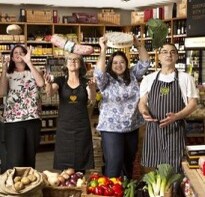Britain's longstanding exclusive relationship with the supermarkets is in terminal decline
The Observer Food Monthly's award for best independent retailer 2014 went to Delifonseca of Liverpool. Photograph: Murdo Macleod for the Observer
Advertisement
Advertisement
Advertisement
Advertisement
The Observer Food Monthly's award for best independent retailer 2014 went to Delifonseca of Liverpool. Photograph: Murdo Macleod for the Observer
For the latest food news, health tips and recipes, like us on Facebook or follow us on Twitter and YouTube.
Advertisement
